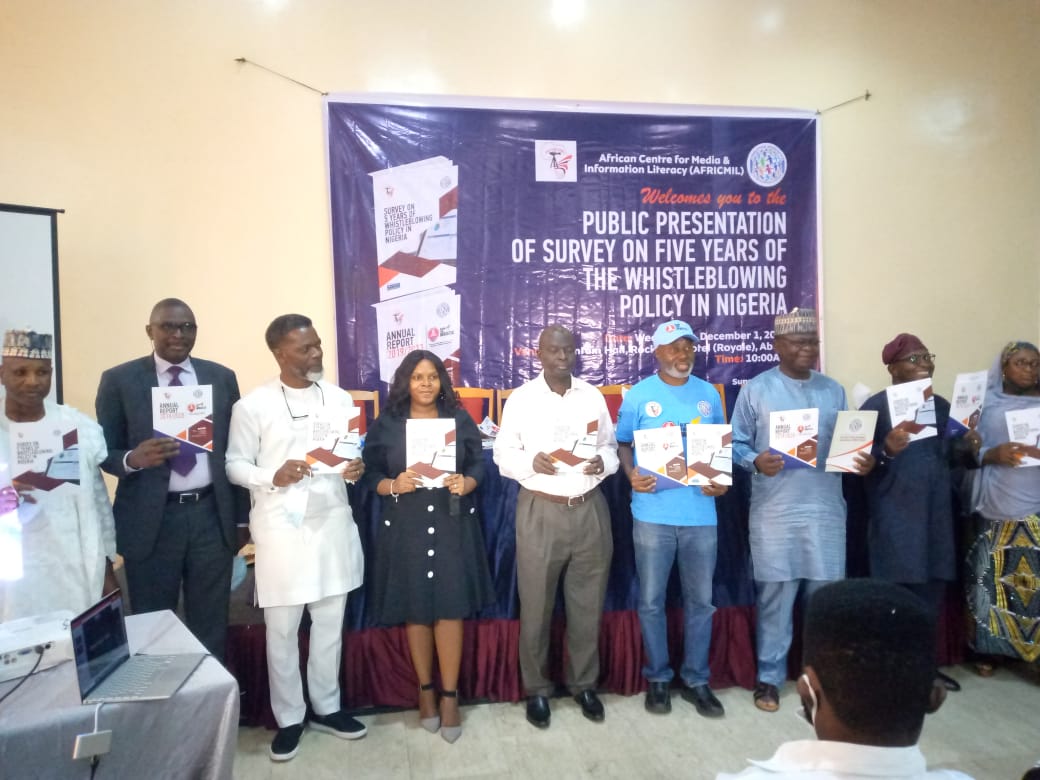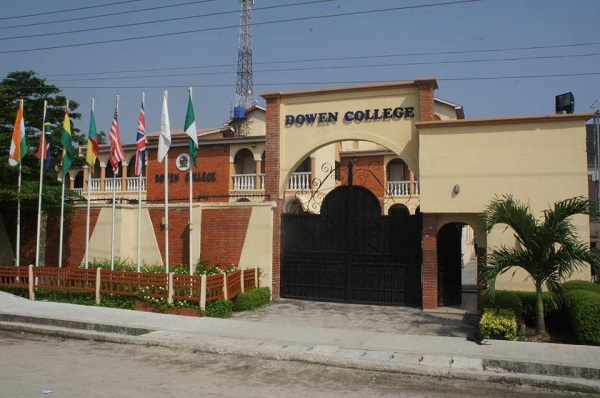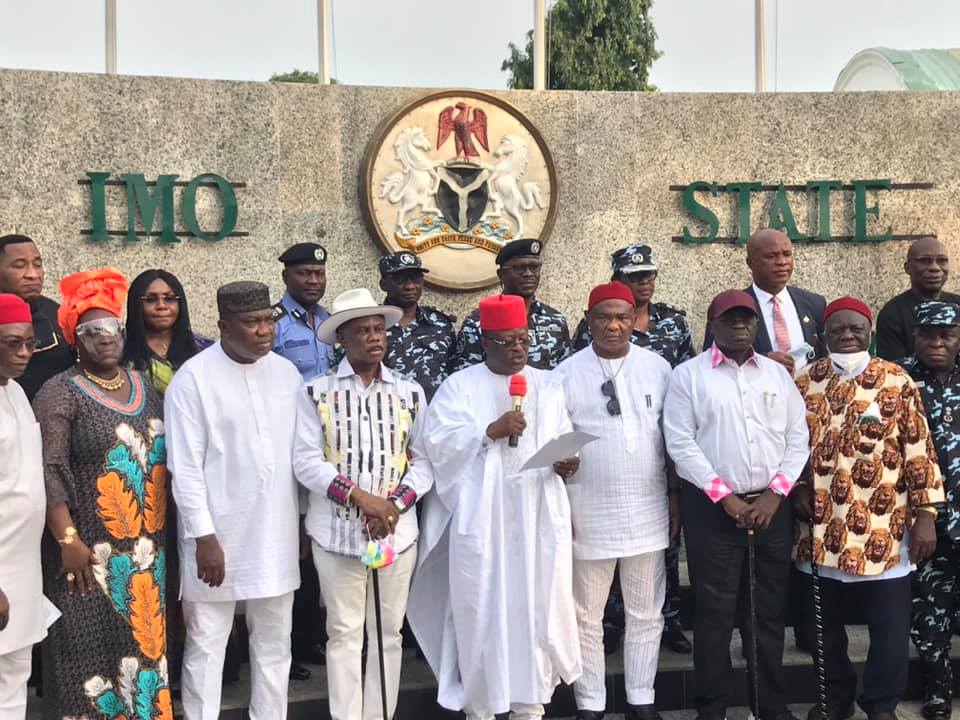The African Centre for Media and Information Literacy (AFRICMIL) says the whistleblowing policy of the federal government in tackling corruption has not recorded the desired result because it lacks necessary backing.
AFRICMIL is a non-governmental organisation that focuses on media, information, research, advocacy and training.
According to a survey on five years of the whistleblowing policy in Nigeria, which was released on Wednesday in Abuja, the centre expressed concern over the low level of achievement recorded through the policy.
“Overall evidence from both quantitative and qualitative data showed that while the whistleblowing policy has recorded some achievements in the last five years, its impact in curbing corruption and other corrupt practices in Nigeria has remained minimal due to several identified barriers which include but are not limited to lack of legislative protection, limited funding, insufficient data source on progress made so far, lack of political will, limited knowledge of specific provisions in the policy among many state actors, poor reporting and controversial compensation mechanisms, political patronage, prolonged investigation, and widespread retaliation against whistleblowers,” the reports reads.
Advertisement
Speaking at the event, Chido Onumah, AFRICMIL’s coordinator, said the research was conducted to assess the impact of the whistleblowing policy of the federal government.
Onumah said the federal government should work with the national assembly to ensure that the proposed whistleblowing protection bill is passed and signed into law, adding that it will sustain the whistleblowing policy beyond the current administration.
“This month marks five years since the introduction of the whistleblowing policy. To assess its performance over this period, AFRICMIL commissioned a survey in July targeting 7,000 respondents in six states across the six geopolitical zones as well as in Abuja,” he said.
Advertisement
“The survey involved key informant interviews with revenue-generating MDAs, anti-graft agencies, media, civil society groups and other stakeholders. It also featured online respondents from the public, including professionals, youths, students, academic institutions, artisans, market women, religious leaders and organised labour.
“Although the majority of Nigerians are aware of the whistleblowing policy, one-quarter of the respondents are unwilling to report any form of corrupt practices while three out of every four respondents have stopped reporting cases of looted funds due to nepotism, fear of victimisation/stigmatisation, lack of knowledge on the kind of information to report and the appropriate channel to report and the feeling that no serious action will be taken by the authorities in charge even if a report is made.
“The federal government should collaborate with the national assembly to ensure that the proposed whistleblowing and whistleblower protection bill is passed and signed into law before the end of this current administration. This will help to sustain whistleblowing beyond the current administration.”
Sadiq Raddah, executive secretary of the Presidential Advisory Committee on Anti Corruption (PACAC), who also spoke at the event, said the federal government remains committed to its fight against corruption.
Advertisement
“The fight against corruption as far as PACAC is concerned will continue. This is because we are convinced that without fighting corruption, we will not have a country,” he said.
“We began the issue of whistleblowing believing that our anti-graft agencies cannot be everywhere but the people who perpetrate corruption are everywhere in the country. Therefore, somebody has to say what is going wrong somewhere for the authorities to take action.”
The federal government launched the whistleblowing policy in 2017 to increase the exposure of financial crimes; support the fight against financial crimes and corruption; improve the level of public confidence in public entities and enhance transparency and accountability in the management of public funds.
Advertisement
Add a comment






